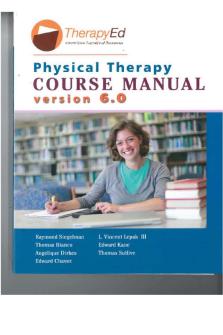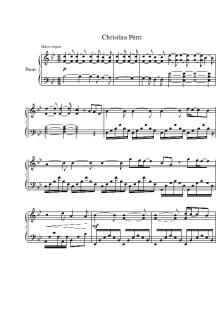Thousand years pt 2 - notes on book PDF

| Title | Thousand years pt 2 - notes on book |
|---|---|
| Author | Hope Wilson |
| Course | Literature In Translation: The Holocaust |
| Institution | East Carolina University |
| Pages | 2 |
| File Size | 76.6 KB |
| File Type | |
| Total Views | 137 |
Summary
notes on book ...
Description
Discussion Questions: I Have Lived a Thousand Years by Livia Bitton-Jackson (pp. 91-156) 1. “The Riot”: What constituted a “riot” in the female barrack at Auschwitz where Elli and her mother now live? How did this riot end? -any sort of act that is viewed as “stepping out of line” or not following the rules of the camp. - a mom was separated from her child, and child wouldn’t stop crying; child was shot. 2. What was a Blockälteste and what was her job? - She was another prisoner that was in charge of Eli’s barrack and keeping them in line/ punishing them. They normally lived in a special part of their barracks. 3. “Teen Vanity”: Why is this chapter called “Teen Vanity”? What typical “teen” reactions does Elli describe here? - Teen vanity: she talks a lot about how she looks, and how disgusted she is with her appearance. A girl gets her period and Eli says that she would rather be shot than have blood running down her legs in front of others. 4. Describe the latrine at Auschwitz that Elli and the other inmates must use. - it was just a big ditch dug into the group that people were brought to use 50 at a time, they had to lean over the edge to use the bathroom. Eli and her fam. Used this to meet with each other at 5. What is the worst part of being in Auschwitz for Elli? For her mother? - For Elli it was always being thirsty and wanting water. For her mom, it was being hungry all the time. 6. “The Dawn of New Hope”: Where are Elli and her mother sent to in this chapter? Why is Elli so elated? - They are sent to Krakow. She’s happy b/c they are getting to leave AUS. 7. “Mommy, there’s a worm in your soup!”: How do the Kapos at Plaszow treat the inmates? 8. What job are the inmates forced to perform? - work in the infirmary, work in kitchen, prostitutes, make bombs/amo. 9. “Alien Heroes”: What happens to the “alien heroes” in this chapter? Who do you think they were? - Civilians that are normally dressed, probably related to the resistance. 10. How might we answer Elli’s rhetorical question: “What we had just witnessed, and its aftermath[, . . .] was this death? Or was it something else, something much more inexplicable?” (p. 106) - She has witnessed first hand the brutal tactics of war and the inhumane way that the Nazis treated people. 11. “The Uprising”: What is the “uprising” that Elli speaks of? How does the uprising benefit the Plaszow inmates? - The shooting of the 10th is postponed due to an attempt to free the camp, and possibly the attempt on Hitler’s life. 12. “Hitler is not dead”: How has Elli changed in the 7½ weeks she spent at Plaszow? - Learned to live in fear and terror, with abuse, pain, and how to endure it. 13. Where are Elli and her mother taken after having worked at Plaszow? Describe the train ride they take there. - The train ride is crowded and have no room to sit or even stand really. Everyone was falling over and they were taken back to A. 14. “The Broken Bed”: What happens to Elli’s mother in this chapter? Why is it so scary? - A woman is on the top bunk and Elli can tell that it is going to fall on her mom who is lying under it. And it falls and her mom is trapped under the bed. Her spine is broken and she becomes paralyzed. This shows how important it is for community and for people to look out for one another. It is scary b/c this puts her mother in grave danger of getting killed. 15. “The Selection” and “The Transport”: How does Elli manage to save her mother? How does she save herself? What is remarkable about her efforts?
Discussion Questions: I Have Lived a Thousand Years by Livia Bitton-Jackson (pp. 91-156) - elli and others who said they’d help her snuck into the infirmary to rescue her mother so that she would be taken with them instead of being killed. During the walk, Elli’s mom passed the inspection, but she was begging Elli to leave her behind. Her mom is discouraged and tired. 16. “A Handkerchief”: What does Elli call “the first, and greatest, triumph of my life”? (p. 147) - saving herself and her mom from selection while doing dangerous and violent things to escape the lines of termination. 17. “This must be heaven”: What do the Hungarian women find to joke about when they arrive in Augsburg? - the prisoners get asked where their luggage is and everyone jokes about that b/c they don’t have a single thing to call their own; let alone luggage. 18. Why does Elli and her mother’s life in Augsburg feel like “heaven” to them? What is life like there, compared to the life in Auschwitz? - they each receive things that they didn’t have before, like hand towels and soap, which makes life a bit easier. They are given real meals instead of portions of “sludge” that Ellie describes in previous chapters. Their housing isn’t as cramped and they have white sheets on their own beds which is nice. 19. What are their jobs in Augsburg? - they work in factories making parts for the German Air force. 20. “Herr Zerkübel”: How does Herr Zerkübel select women for various jobs? - he selects them based on their hair, eye, and skin color that most relates to the Aryan race that he is looking for. 21. How do the Germans make sure the women do not sabotage the products of their labor? - it gets checked by German civilians throughout the assembly line and then at the end before it is “finished” 22. What would you say, at this point in this memoir, were the many reasons Elli miraculously survived the treatment she received during the Holocaust? - Elli had someone to live for, she was determined to make it out alive, and having someone to look out for like her mother made it easier for her to survive. She also resembled an Aryan German and I think this might have made it easier....
Similar Free PDFs

50 Years Data Science Book
- 41 Pages

Blue Book PT SUMMARY
- 310 Pages

Physics Notes Pt.2. pdf
- 5 Pages

Flemish Art pt. 2 - notes
- 8 Pages

12 Years a Slave - Book summary
- 3 Pages

DUN-A - PT book review
- 66 Pages

Ch. 14 Notes - Based on the book
- 8 Pages

Book building - Lecture notes 2
- 4 Pages

Plato Book 1-2 Notes
- 2 Pages

Book 2 - Book study
- 3 Pages
Popular Institutions
- Tinajero National High School - Annex
- Politeknik Caltex Riau
- Yokohama City University
- SGT University
- University of Al-Qadisiyah
- Divine Word College of Vigan
- Techniek College Rotterdam
- Universidade de Santiago
- Universiti Teknologi MARA Cawangan Johor Kampus Pasir Gudang
- Poltekkes Kemenkes Yogyakarta
- Baguio City National High School
- Colegio san marcos
- preparatoria uno
- Centro de Bachillerato Tecnológico Industrial y de Servicios No. 107
- Dalian Maritime University
- Quang Trung Secondary School
- Colegio Tecnológico en Informática
- Corporación Regional de Educación Superior
- Grupo CEDVA
- Dar Al Uloom University
- Centro de Estudios Preuniversitarios de la Universidad Nacional de Ingeniería
- 上智大学
- Aakash International School, Nuna Majara
- San Felipe Neri Catholic School
- Kang Chiao International School - New Taipei City
- Misamis Occidental National High School
- Institución Educativa Escuela Normal Juan Ladrilleros
- Kolehiyo ng Pantukan
- Batanes State College
- Instituto Continental
- Sekolah Menengah Kejuruan Kesehatan Kaltara (Tarakan)
- Colegio de La Inmaculada Concepcion - Cebu





